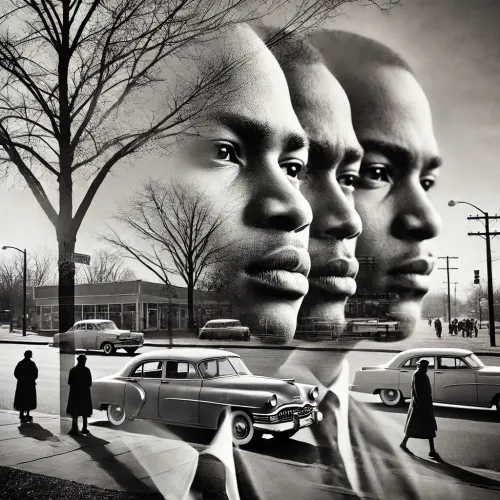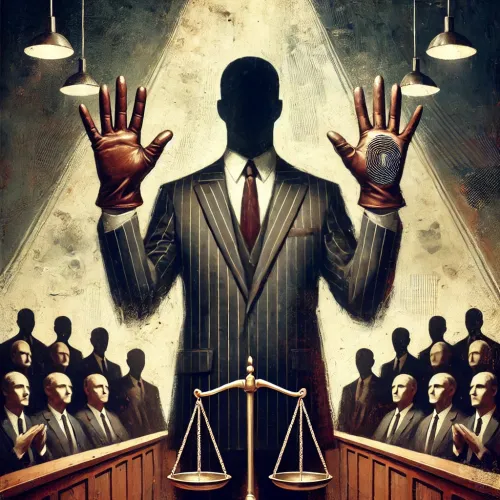The jury system has long been a cornerstone of democratic justice, designed to empower ordinary citizens to act as a check on governmental overreach. At its heart lies the principle of jury nullification, where jurors refuse to convict defendants when they believe a law is unjust or improperly applied. However, in recent years, legislative and judicial efforts to suppress awareness of jury nullification have intensified, undermining this critical mechanism of accountability. These measures represent a troubling erosion of the jury's independence and its role as a safeguard of fairness.
Jury nullification is as old as the jury system itself, with roots in English common law and a storied history in American justice. From the colonial acquittal of John Peter Zenger for seditious libel to the refusal of Northern juries to enforce the Fugitive Slave Act, nullification has been a powerful tool for resisting oppressive laws. Today, it remains a potential avenue for challenging systemic injustices, such as harsh drug laws, mandatory minimum sentences, and the criminalization of civil disobedience. Yet, despite its historical and moral significance, the legal system increasingly seeks to suppress awareness of this right.
One of the primary ways nullification is silenced is through jury instructions. Judges routinely direct jurors to apply the law as given, regardless of personal beliefs about its fairness. In many jurisdictions, jurors who openly express an intention to nullify may be removed during voir dire, effectively excluding those who would prioritize conscience over compliance. This approach reduces jurors to mere instruments of the state, ignoring their intended role as independent arbiters of justice.
Beyond judicial practices, legislative efforts have further curtailed public discussion of nullification. Organizations like the Fully Informed Jury Association (FIJA), which seeks to educate jurors about their rights, have faced significant pushback. Activists distributing pamphlets near courthouses have been arrested and charged with jury tampering, even when their materials are non-specific and focus on general awareness. Laws in states such as Florida and Colorado have criminalized such activities, chilling efforts to inform citizens about their rights.
The suppression of nullification awareness is often justified as a means of preserving the rule of law and preventing inconsistent verdicts. Critics argue that empowering jurors to disregard the law risks creating chaos and undermining public confidence in the legal system. However, this perspective overlooks the foundational purpose of the jury system: to ensure that laws serve justice, not the other way around. Blind adherence to the law, without regard for fairness or morality, transforms jurors into enforcers of potentially oppressive statutes, undermining the very principles of democracy.
The history of nullification demonstrates its vital role in advancing justice. During Prohibition, juries frequently refused to convict individuals for alcohol-related offenses, signaling widespread public disapproval of the law and contributing to its eventual repeal. In more recent decades, nullification has been a quiet force in cases involving drug offenses, where jurors have resisted enforcing laws they view as overly punitive. By stifling awareness of this right, legislative efforts disregard these lessons and erode the jury's ability to act as a check on legislative and executive overreach.
The consequences of suppressing nullification are far-reaching. Without informed jurors, the balance of power in the courtroom shifts entirely to judges and prosecutors, limiting the jury’s role to a perfunctory one. This undermines the democratic nature of the jury system, which is meant to reflect community values and provide a voice for ordinary citizens. It also deprives defendants of a crucial avenue for challenging laws that fail to account for the complexities of individual cases.
Furthermore, the criminalization of jury education campaigns raises serious First Amendment concerns. Efforts to silence organizations like FIJA represent an attack on free speech, targeting those who seek to inform citizens about their rights and responsibilities. Such measures prioritize the appearance of legal order over the substantive pursuit of justice, betraying the ideals upon which the jury system was founded.
To preserve the integrity of the legal system, it is essential to resist these legislative and judicial efforts to suppress nullification awareness. Courts should provide jurors with complete and accurate information about their rights, including the option to acquit based on conscience. Activists should be free to educate the public about nullification without fear of prosecution. And lawmakers must recognize that an informed jury is not a threat to justice but a safeguard against its erosion.
Jury nullification is not a tool for anarchy; it is a mechanism for accountability. It ensures that laws remain aligned with societal values and provides relief when the rigidity of the legal system fails to deliver fairness. By silencing awareness of this right, we risk creating a justice system that prioritizes compliance over conscience and order over equity. To honor the principles of democracy and justice, we must defend the jury’s independence and its power to nullify unjust laws.




